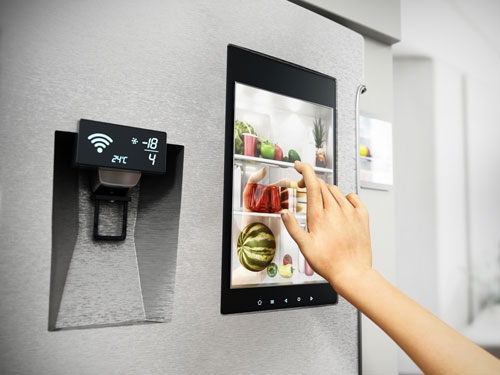Smart Household Appliance Adoption in Africa to Surge by 2029

The adoption of smart household appliances in Kenya is set to experience a significant upturn, as consumer demand for convenience, energy efficiency, and advanced technology continues to rise. According to the latest consumer data reported by Statista, it is projected that smart home appliances will increase in penetration to 5.8% by 2029, up from 2.8% in 2025. This surge is expected to see over 830,000 households adopting smart appliances, marking a clear shift towards home automation in Kenya.
Smart appliances, such as LG’s InstaView refrigerators, are increasingly becoming a key part of modern homes. These appliances, which are often internet-connected and can be controlled via mobile apps or voice assistants, provide greater convenience and efficiency, meeting the needs of a growing middle class. Popular products like refrigerators, washing machines, televisions, speakers, and air conditioners are now incorporating innovative features such as temperature control, inventory tracking, and predictive maintenance alerts. These appliances also offer enhanced energy management and optimization features, which are becoming crucial for Kenyan households facing rising energy costs.
The increase in adoption is largely driven by advancements in Artificial Intelligence (AI) and the Internet of Things (IoT) technologies. With these innovations, consumers in Kenya are looking to embrace the convenience of managing their household devices remotely, saving time and reducing energy consumption. For instance, the LG InstaView refrigerator, equipped with ThinQ technology, allows users to monitor and control their fridge’s performance via their smartphones. It even sends notifications if the door is left open or offers a ‘vacation mode’ to conserve energy when the home is unoccupied.
“Over the past decade, we’ve seen remarkable advancements in household appliance technology, and LG has been at the forefront of introducing these innovations to African markets. We’re excited to expand our smart appliances to millions of homes in Kenya, where demand for energy-efficient and intelligent solutions is on the rise,” said Donghun Lee, President of LG East Africa.
In addition to technological advancements, the growth of the smart appliance market is also being supported by consumer-friendly financing options, government incentives for energy-efficient products, and the rapid rollout of 5G technology across Kenya. As 5G connectivity becomes more widespread, the performance of connected devices will continue to improve, making smart appliances more accessible to a wider segment of the population.
The expansion of smart home appliances aligns with broader trends in Africa’s home automation sector. As consumers increasingly seek ways to improve their quality of life and reduce their environmental footprint, demand for energy-efficient, high-tech appliances is expected to grow exponentially. These devices not only promise enhanced lifestyle and convenience but also play a vital role in reducing energy consumption, making them an attractive option for African households looking to address sustainability challenges.
As Kenya leads the charge, other African nations are also showing a rising interest in smart technologies. The continent’s growing urbanization, tech adoption, and emphasis on sustainability create fertile ground for the expansion of smart home appliances. With Kenya’s growing economy and tech-savvy population, smart household appliances are poised to become an integral part of daily life in the country, driving broader change across the African continent towards smarter, more sustainable homes.






